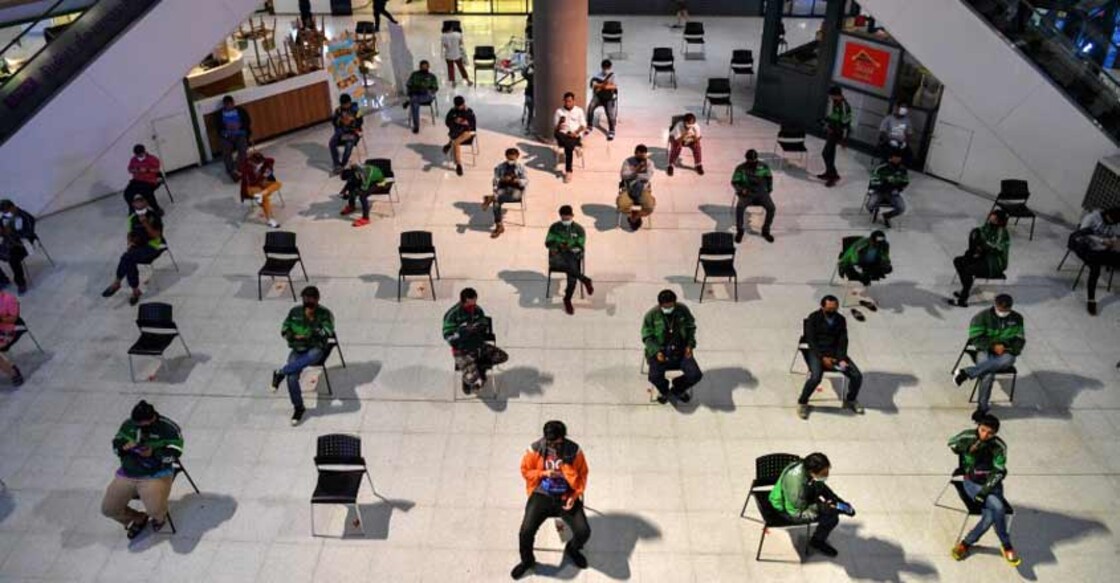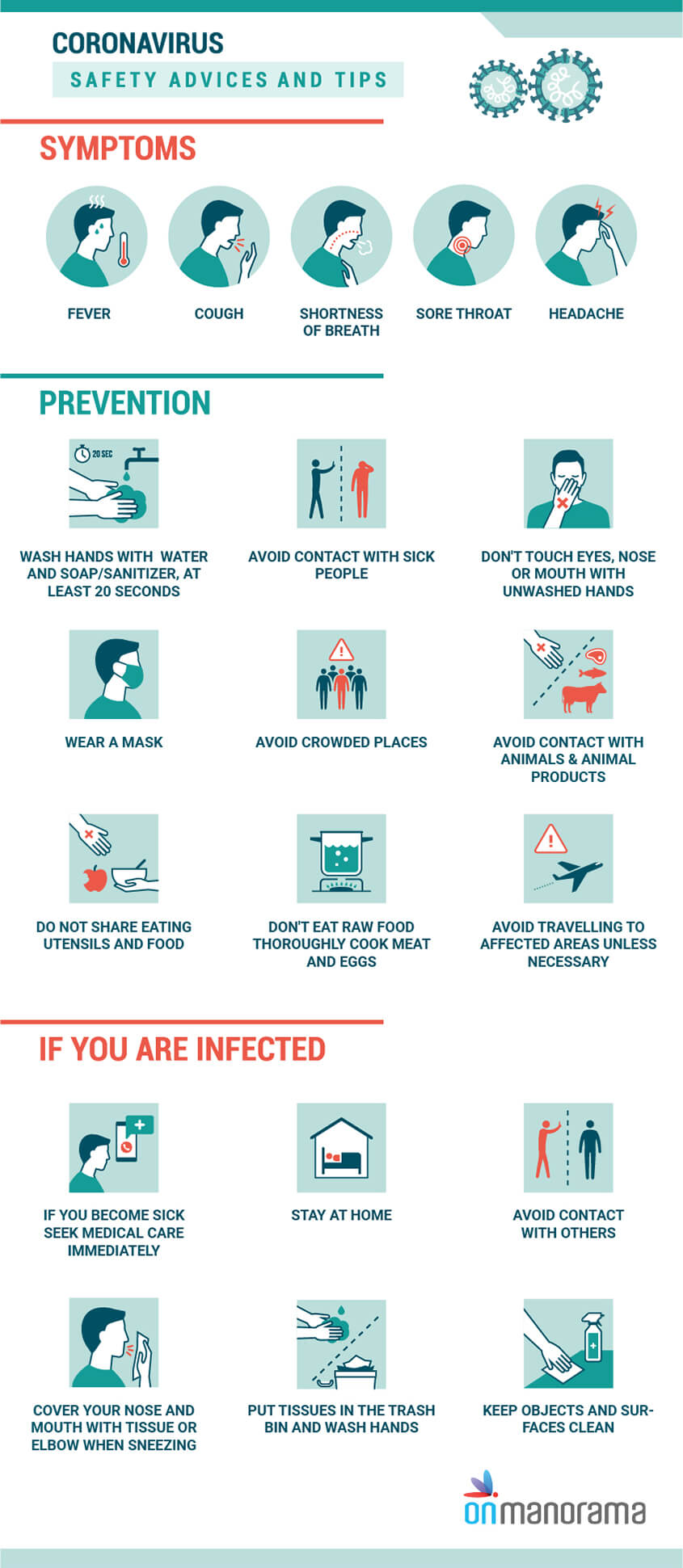US coronavirus deaths now 600, almost 50,000 confirmed cases

Mail This Article
Geneva/New Delhi: The United States could become the global epicentre of the coronavirus pandemic, the World Health Organization said on Tuesday. The US has the third-highest number of confirmed cases globally, behind China and Italy.
Six hundred people have died from the new coronavirus in the United States, while the number of confirmed cases now stands at 49,768, a tracker maintained by Johns Hopkins University showed Tuesday.
Britain and other countries are clamping down to hold back the virus as business activity collapsed from Japan to the United States at a record pace in March.
The highly contagious coronavirus has caused entire regions to be placed on lockdown. In some places soldiers are patrolling the streets to keep consumers and workers indoors, halting services and production and breaking supply chains.
"The global health crisis is rapidly morphing into a global recession, as there is a clear tension between preventing infections and ruining the economy," said Edoardo Campanella, an economist at UniCredit Bank in Milan.
But Wall Street bounced from three-year lows as investors pin their hopes on the US Senate passing a $2 trillion stimulus bill.

Confirmed coronavirus cases around the world exceeded 3,77,000 across 194 countries and territories as of early Tuesday, according to a Reuters tally, more than 16,500 of them fatal.
In Geneva, WHO spokeswoman Margaret Harris said infections in the United States had greatly increased.
Over the previous 24 hours, 85 per cent of new cases were in Europe and the United States, and of those, 40 per cent were in the United States.
As of Monday, the virus had infected more than 42,000 people there, killing at least 559.
Asked whether the United States could become the new epicentre, Harris said: "We are now seeing a very large acceleration in cases in the US. So it does have that potential."
Some US state and local officials have decried a lack of coordinated federal action, saying that having localities act on their own has put them in competition for supplies.
President Donald Trump acknowledged the difficulty.

"The World market for face masks and ventilators is Crazy. We are helping the states to get equipment, but it is not easy," he tweeted.
Of the top 10 countries by case numbers, Italy has reported the highest fatality rate, at around 10 per cent, which at least partly reflects its older population. The fatality rate globally - the ratio of deaths to confirmed infections - is around 4.3 per cent, though national figures can vary widely according to how much testing is done.
Britain, believed by experts to be about two weeks behind Italy in the outbreak cycle, on Tuesday began curbs on movement without precedent in peacetime after Prime Minister Boris Johnson ordered the country to stay at home.
The streets of the capital were quiet as all but essential shops closed and people only went to work if it was unavoidable.
Johnson had resisted pressure to impose a full lockdown even as other European countries had done so, but was forced to change tack as projections showed the health system could become overwhelmed.
Meanwhile China's Hubei province, the original centre of the outbreak, will lift curbs on people leaving the area, but other regions will tighten controls as new cases double due to imported infections.
The provincial capital Wuhan, which has been in total lockdown since January 23, will lift its travel restrictions on April 8.
However, the risk from overseas infections appears to be on the rise, prompting tougher screening and quarantine measures in cities such as the capital Beijing.
With the pandemic spreading across the world, 240 people were killed in France on Tuesday alone, bringing the death toll in the country from coronavirus to 1,100.
Jerome Salomon told reporters that 22,300 people had tested positive for the virus in France, with a total of 10,176 hospitalised of whom 2,516 people are in intensive care.
Officials believe that the published number of those infected largely underestimates the real figure, as only those showing severe symptoms are usually tested.
Italy's 743 new deaths broke two days of successive declines that had taken the number down to 601 on Monday.
It set a world record of 793 fatalities on Saturday.
But officially registered new infections rose just eight per cent - the same as Monday and the lowest level since Italy registered its first death on February 21.
It had been running at as high as 50 per cent at the start of March.
The numbers from the US are also similar to the track of those of Italy about 20 days ago.
Most other European nations and some US states have followed Italy's example and imposed their own containment and social distancing measures designed to stop the spread.
The data that Borrelli has gathered from Italy's 22 regions are of crucial interest to global policy makers and medical experts.
Government are weighing the potential benefits of Italy's measures against their damage to the economy and families' livelihoods.
Big global banks think the business closures have plunged Italy into a deep recession that could be more severe than anything seen in decades.
Spain seeks NATO support
Spain's armed forces on Tuesday asked NATO for humanitarian assistance to fight the novel coronavirus as the national death toll touched 2,700 and infections soared towards 40,000 in the country.
Spain has been one of the worst-hit countries, logging the third highest number of deaths with the latest toll standing at 2,696 after another 514 people died over the past 24 hours.
Despite an unprecedented lockdown imposed on March 14, both deaths and infections have continued to mount, with the Spanish army called in to join efforts to curb its spread.
With authorities stepping up testing, the number of people diagnosed with COVID-19 rose by nearly 20 per cent to 39,673.
In a statement, NATO said Spain's military had asked for "international assistance", seeking medical supplies to help curb the spread of the virus both in the military and in the civilian population.
The request specified 450,000 respirators, 500,000 rapid testing kits, 500 ventilators and 1.5 million surgical masks.
With the numbers still spiralling, the government of Prime Minister Pedro Sanchez on Tuesday sought parliamentary approval to extend the state of emergency for an extra two weeks, until April 11 - the day before Easter - in a bid to slow the spread of the virus.
Iran rejects foreign help
A senior Iranian official Tuesday ruled out "foreign" help on the ground to deal with the coronavirus epidemic after an offer from a France-based medical charity, as the country's death toll from the illness neared 2,000.
Doctors Without Borders (MSF) had said Sunday that it planned to send a nine-member team and equipment to set up a 50-bed hospital, stirring opposition from ultra-conservative circles in the Islamic republic who charged that MSF staff would serve as "spies".
Health ministry spokesman Kianoush Jahanpour earlier said a record 1,762 new cases have been confirmed in Iran over the past 24 hours and 24,811 people are now known to have been infected with the new coronavirus.
He announced 122 new deaths from the virus, raising the official toll to 1,934 in one of the world's worst hit countries.
Iran has the fourth highest official death toll from the coronavirus after Italy, China and Spain but, unlike those countries, it has yet to impose any lockdown on its citizens.
(With inputs from Reuters and AFP)


